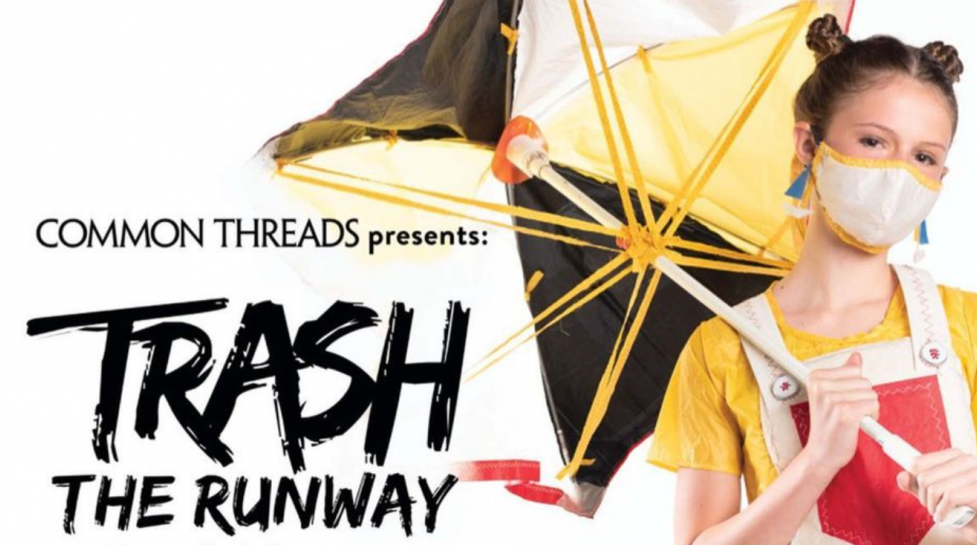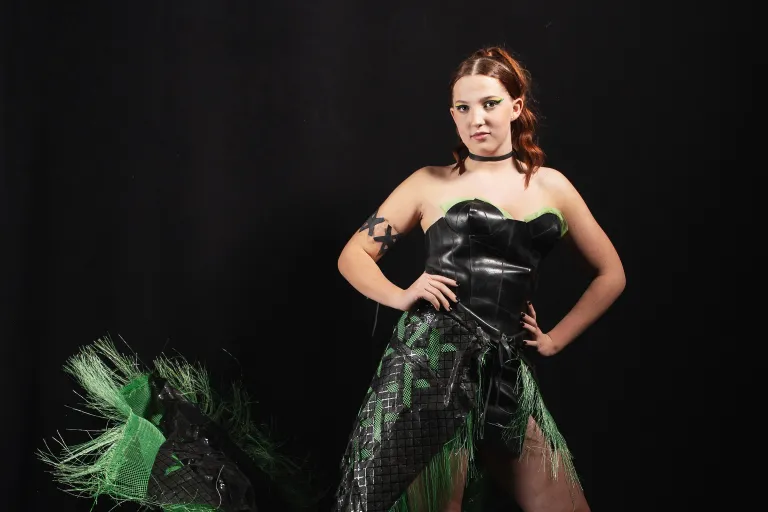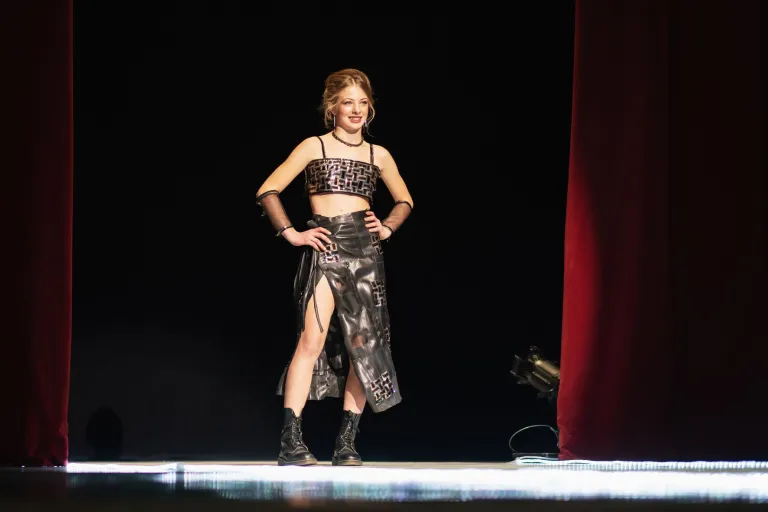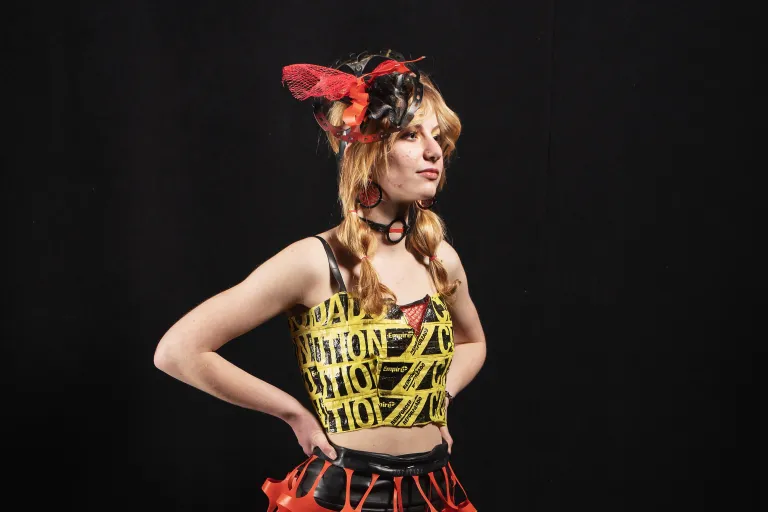Experience the 12th annual Trash the Runway
Trash the Runway 2022
On Feb. 17, more than 700 community members filled the seats of Macky Auditorium Concert Hall.
The cheering of parents, friends and other excited attendees roared against the beat of pop music as the lights dimmed to a deep purple glow. The show was about to begin.
Listen to the crowd cheer
Read the text version of the crowd cheering
Excitement was building for the 12th annual Trash the Runway.
The event, run by the Common Threads Creative Lab and sponsored in part by the City of Boulder, is a design competition that challenges local middle and high school students to create high fashion out trash. Students have two months to transform found and recycled materials into runway-ready outfits.
This year, the competition featured 25 students who sported candy wrappers, fishing nets, soccer balls, computer tape, trampoline fabric and other materials that might end up in our landfills.
For many students, this was opportunity to be courageous and make a statement about the environmental impact of common materials.
“It’s important to realize how much trash we’re putting into the world,” said 10th grader Malia Chipouras. “This is less than three days of receipts from a tiny store.” Malia sewed a long white gown from grocery store receipts.
Listen to Malia Chipouras' quote from backstage

Malia Chipouras' gown made from grocery receipts
9th grader Rye Rothman made her outfit from candy wrappers and plastic packaging. “All of this plastic – none of it can go in single stream recycling, and this was gathered in a matter of weeks,” said Rothman. “I wanted to make a statement on just how much plastic we really use, and I hope it made an impact on you like it did on me.”
Listen to Rye Rothman's quote from the runway

Rye Rothman's outfit made from candy wrappers and plastic packaging.
Trash the Runway demonstrates the creativity, determination and awareness required to become a zero waste community.
“Sometimes edgy, always beautiful, this program not only demands that students learn the specifics of sorting waste, but, more importantly, that they think deeply about the companies and systems that built and maintain our throw-away economy,” said city Sustainability Programs Manager Ellen Orleans.
Media Gallery
“It throws a powerful light on waste, urging all of us to recommit to a more circular economy.”
Growing a Circular Economy
The city is growing a more circular economy that reuses, repairs, recycles and composts an increasing number of materials.
Learn more about this work by exploring our Circular Boulder guide.



